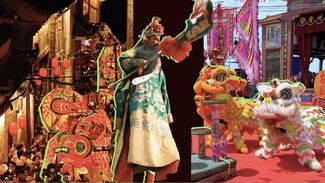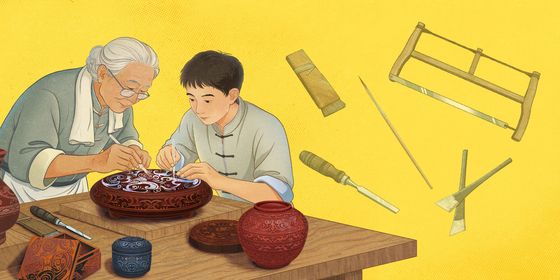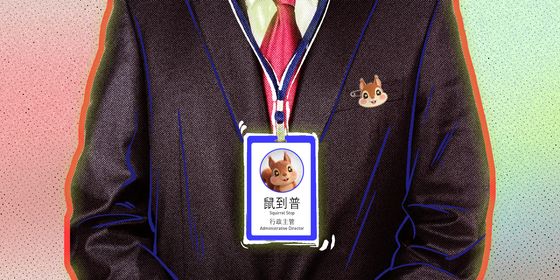Why young Chinese call themselves “laborers,” “balance payers,” and “tool people”
Tick, tock, tick, tock…midnight is approaching, but you are still staring at your smart phone with swollen eyes and unruly hair, wondering if you should enter the payment password. After finally giving in and clicking those buttons, you go to bed with both satisfaction and regret, knowing you’ve acquired a new identity: a “balance payer (尾款人 wěikuǎnrén).”
Millions of Chinese spent a sleepless night like this on November 11th, known as the Singles’ Day (光棍节 Guānggùnjié). Originally a tongue-in-cheek holiday for young people to celebrate their single status, the so-called “Double Eleven Festival (双十一 shuāng shí yī)” has become the world’s largest online shopping extravaganza, where buyers can join in “presales” by paying deposits on items several weeks ahead.
Attracted by the low deposit amount, and goaded by slogans like “If you miss out today, you have to wait a whole year (错过今天,再等一年 Cuòguò jīntiān, zài děng yì nián),” China’s 剁手党 (duòshǒudǎng, “hand-cutting party”), or shopaholics, were shocked to find themselves trapped in a vicious consumerist cycle of “satisfaction when paying the deposit, and crying when the balance is due (定金一时爽,尾款哭断肠 Dìngjīn yìshí shuǎng, wěikuǎn kū duàncháng).”
Having splashed all their money on one crazy night of shopping, balance payers now have to work even harder to make up for the loss. “Wage slave by day, and balance payer by night (早上打工人,晚上尾款人 Zǎoshang dǎgōngrén, wǎnshang wěikuǎnrén)” is an expression used by many office workers and the middle class to indicate their hopeless struggle to afford their standard of living.
“Worker (工人 gōngrén)” used to refer to blue-collar laborers who perform menial jobs, at minimal wage, which is known as 打工 (dǎgōng). However, people from all walks of life have started to call themselves 打工人 (dǎgōngrén). Increasingly, they feel that their salaries cannot make up for their jobs depriving them of time and energy, sometimes even threatening their health. They refer to particularly difficult and repetitive tasks as “lifting bricks (搬砖 bānzhuān),” indicating the low payment and satisfaction they receive for their devotion to the work.
Too much time under this routine puts one at risk of becoming a “tool person (工具人 gōngjùrén).” This expression originally indicated someone who regularly makes sacrifices for their romantic partner, but the meaning has broadened to include anyone who is used as a convenience to others without getting recognition or respect in return, just like a physical tool.
These three terms containing the 人 (rén, person), which all made it onto Youth Digest magazine’s list of the Top 10 Buzzwords of 2020, suggest that people are increasingly concerned by the limits that money, work, and relationships place on their human dignity. However, unlike previous slang terms such as “corporate slave (社畜 shèchù),” 996 (jiǔ-jiǔ-liù, a term for overwork in the tech industry), or “depressed (丧 sàng),” these memes express a more positive attitude, indicating that people are still willing to fight within the system for their humanity.
Seeking joy amid sorrow, China’s self-nominated workers, tools, and payers have come up with many slogans to inspire themselves, such as “Workers have working spirits, workers are superhuman (打工人打工魂,打工人是人上人 Dǎgōngrén dǎgōng hún, dǎgōngrén shì rén shàng rén)!” Or, “You stay up late working overtime, I get up early to lift bricks. Good morning, workers! (你在熬夜加班,我在早起搬砖。早安,打工人 Nǐ zài áoyè jiābān, wǒ zài zǎoqǐ bānzhuān. Zǎo’ān, dǎgōngrén.)” After all, what are superheroes but another breed of 人?
On Humanity is a story from our issue, “You and AI.” To read the entire issue, become a subscriber and receive the full magazine.












